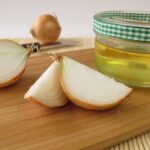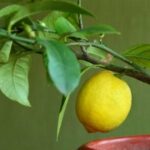These fertilizers provide essential nutrients for the soil, such as potassium and calcium, in order to promote the growth of our plants.
Fertilizers are products used in the garden. Its purpose is to nourish the plants to stimulate their growth and prevent them from wilting after a short time.

At present, in the market there are different varieties and brands that seek to meet the needs of all types of crops and soils; however, there are also homemade alternatives that can work well.
Next, we have wanted to compile some of the options that may be more useful and easy to apply when making your garden more fertile and beautiful.
1. Leftover coffee.
As some studies show, the coffee remains after preparing the drink can work as good fertilizers for those plants with acidic soil such as: blueberries, rose bushes and azaleas.
How to use.
- You will need to bury 3/4 cup (86 g) of coffee grounds close to the roots. Repeat the process once a month.
- Another option is to add six cups of coffee grounds to a full bucket of water. You let it sit for two or three days, and then you sprinkle it all over the soil in your garden.
2. Eggshells.
Although they are almost always used in mixtures with other ingredients, eggshells can be used on their own thanks to their high calcium content that will help prevent blossom end rot in tomato and pepper plants.
It is also healthy for fruit trees, rose bushes, and various types of herbs. Its use can be regular.
- Wash the shells well and let them dry.
- When they are ready, grind them and place the powder around the plants.
3. Banana peel tea.
The potassium is considered one of the most important nutrients for plants after nitrogen. This is involved in the photosynthesis process, in the osmoregulation of water in the plant and the formation of resistant tissues.
When plants burn easily, appear dull and reduce flowering, they may be deficient in this nutrient. To add a good amount, it is worth adding a little banana peel tea.
How to use.
- Cut the banana peels into small pieces and bring them to a boil in enough water for 15 minutes.
- When it’s ready, let it sit and dilute it in an additional two cups of water before placing it in the plant soil.
4. Wood ashes.
The wood ashes are rich in potassium and phosphorus; the latter helps in the ripening of the flowers and fruits, enhancing their aroma and flavor. However, by altering the pH of the soil, they are not recommended for acid soil species.
Before preparing it, it is important to verify that the ashes do not come from woods compromised with heavy metals or other contaminants.
How to use.
- Dilute a good amount of ashes in water and use the liquid for daily watering of the plants.
- Another good option is to spread a layer of ash two to three centimeters away from the stem.
Final note.
As you can see, there are many varieties of naturally derived fertilizers that can be healthier and cheaper than some commercial bottled ones.


